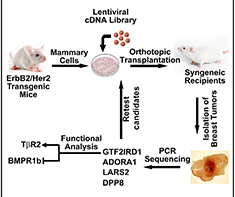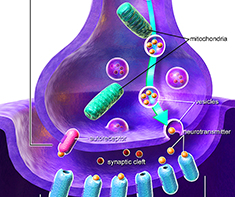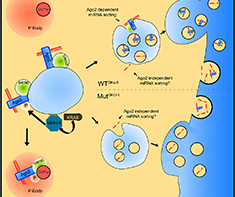Uncategorized
-

Exploring Antibiotic Resistance in a Nanodisc
The increasing prevalence of antibiotic-resistant bacteria is a growing public health threat that must be addressed. One way that bacteria become resistant to antibiotics is through the use of multidrug transporters, membrane proteins that pump foreign molecules out of the cell. Thus, understanding how these proteins work could lead… Read MoreJul. 22, 2016
-

In Search of Cancer Drivers
Rapid advances in our ability to comprehensively examine cancer genomes have revealed that cancer results from an accumulation of genetic damage that is unique for each tumor. Consequently, new therapies that directly target abnormalities in cancer cells must be personalized to match the singular genetic composition of an individual… Read MoreJul. 21, 2016
-

A Bridge to Better Motor Coordination
In the nervous system, signals are transmitted from cell to cell by the flow of chemical neurotransmitters across a specialized junction known as a synapse. In the vertebrate central nervous system, the major neurotransmitter at excitatory synapses is glutamate, which acts by binding to specific protein receptors expressed on… Read MoreJul. 21, 2016
-

Exploring the MiRNA-Cancer Connection
MicroRNA (miRNA) is a short strand of RNA that regulates the translation of messenger RNAs into proteins inside the cell. Recent evidence shows that miRNAs are also found outside of the cell, and that they likely play a role in cell-to-cell communications, including communications between cancer cells and the… Read MoreJul. 20, 2016